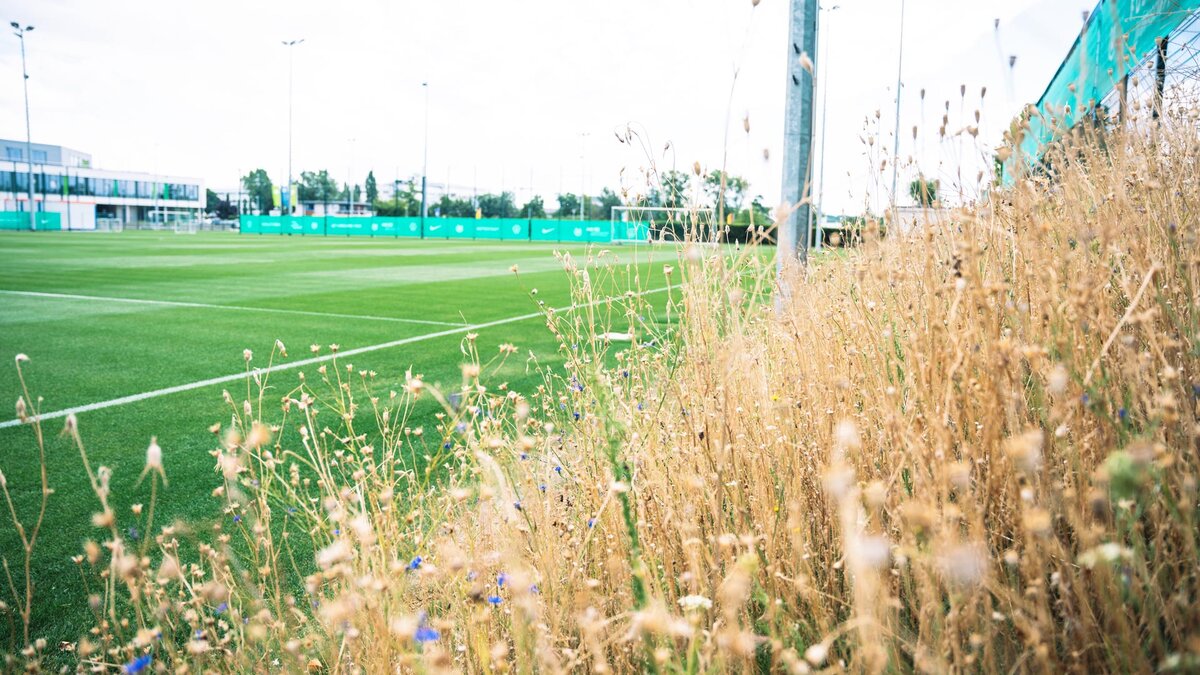Background
VfL Wolfsburg is redefining what it means to be a football club rooted in nature. Based in one of Germany’s most biodiverse urban areas, the Bundesliga team has gone beyond traditional environmental measures to pioneer a comprehensive biodiversity strategy across its stadiums, training grounds and local landscape.
The club became the first in the league to commission a formal biodiversity assessment, laying the foundation for long-term action that integrates species protection into both sporting infrastructure and fan culture. Today, VfL Wolfsburg’s approach combines scientific insight, hands-on restoration and meaningful community engagement.
Challenge
Football clubs are not often seen as major threats to biodiversity, but their operations – from land use and artificial surfaces to energy, water and waste – can have wide-reaching impacts. At the same time, they have powerful platforms to engage fans and stakeholders in environmental action.
For VfL Wolfsburg, the challenge was to understand its true impact on nature, identify opportunities for improvement and embed biodiversity in a way that was locally relevant, scientifically sound and publicly accessible.
Approach
In 2021, VfL Wolfsburg commissioned three biodiversity experts to carry out a full assessment of its ecological footprint and dependencies, resulting in a traffic light system identifying priority action areas.
This formed the basis of the club’s biodiversity action plan, which is now a core part of its environmental strategy.
Key measures include:
- Wildflower corridors near training pitches
- Bird nesting boxes for rare species around the stadium
- Vegetable gardens to support team chefs with local, seasonal produce
- Green roofs, de-sealing of surfaces and planting of native species in new developments
To track progress, the club set a measurable target: implement at least 25% of the recommended measures by 2030.
The club also launched the VfL Forest, a long-term reforestation project within Wolfsburg’s urban forest. This flagship initiative, supported by local utility LSW, plants native trees with funding linked to team performance – €1 per kilometre run. Annual planting days engage fans, players and local authorities, turning restoration into a shared experience.
In early 2024, VfL Wolfsburg deepened its commitment through a partnership with NABU, Germany’s largest nature conservation organisation. Together, they are restoring peatlands in Lower Saxony, which are carbon-rich ecosystems that are critical to climate and biodiversity goals. Fans and staff participate in active days on-site, creating strong emotional connections to nature.
The VfL Forest is a long-term reforestation project within Wolfsburg’s urban forest
Results and impact
VfL Wolfsburg has emerged as a leading voice in football for biodiversity. The club’s strategic plan has turned insights from science into tangible change, with visible improvements to green space, ecosystem function and community participation.
It has reduced its local footprint while increasing habitat value around its facilities. Education is central to the club’s mission, with fans learning about nature through matchday experiences, volunteer events and online campaigns.
By working with city officials, utilities and conservation groups, the club has also aligned its goals with broader regional sustainability plans, contributing to nature restoration well beyond the pitch.
Lessons learned
Wolfsburg’s experience shows that biodiversity is not a “nice-to-have” – it’s an essential part of long-term environmental responsibility. By grounding its work in science and building partnerships with trusted local actors, the club has created a roadmap that others in football and beyond can follow.
Small changes, from flower beds to bird boxes, can have a major cumulative effect, especially when embedded into infrastructure, culture and community.
“For us, biodiversity is about preserving the value of nature in and around our facilities, creating additional ecological value, and activating our stakeholders. Given our location – surrounded by lakes, rivers and forest – we see our stadium grounds as a kind of biodiversity hub,” says Nico, Head of CSR & Sustainability, VfL Wolfsburg.
Topics
Nature protection
Nature restoration
Off-site nature protection and restoration
Sports venue – operations
Land
Pitch, course and outdoor court sports
Club/team
